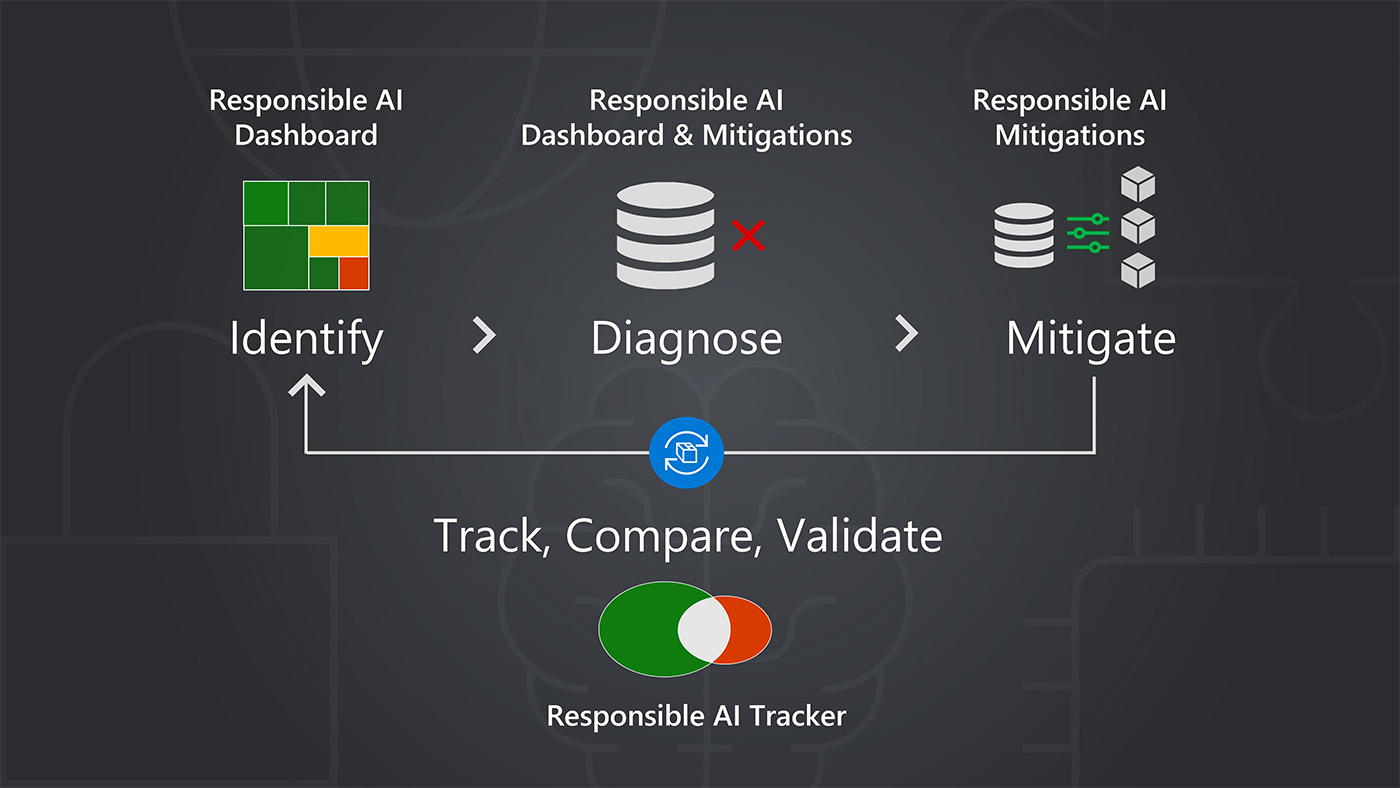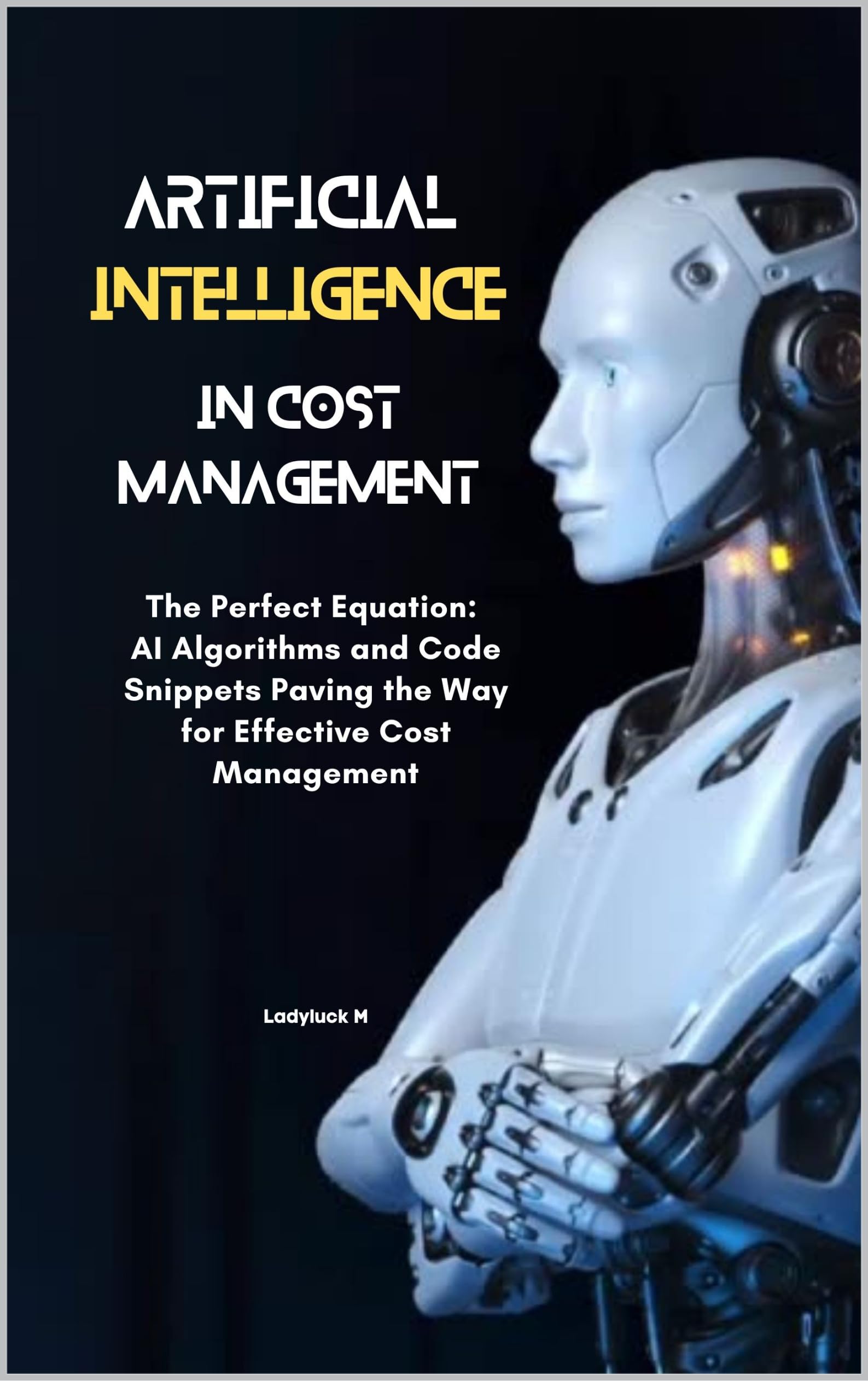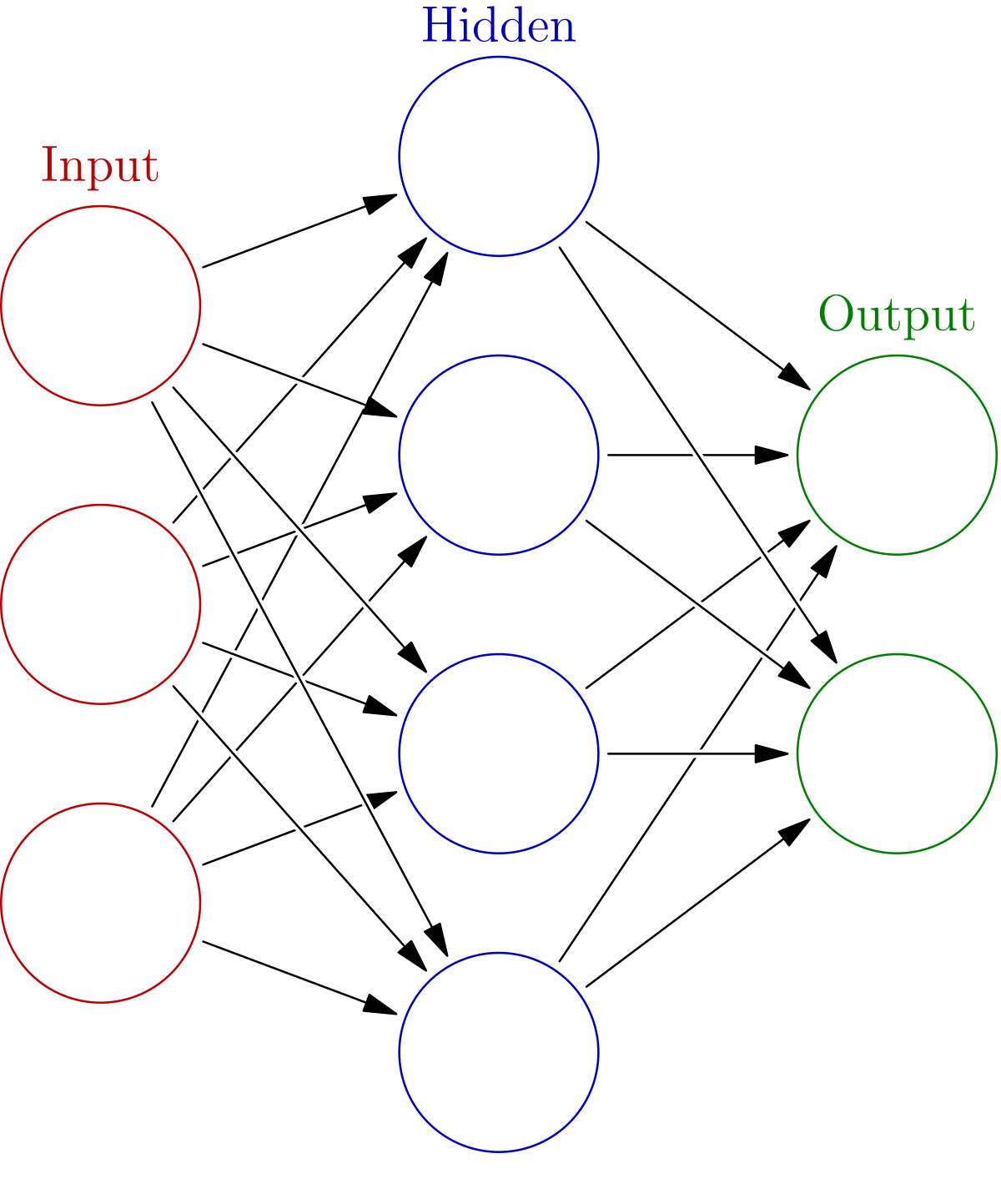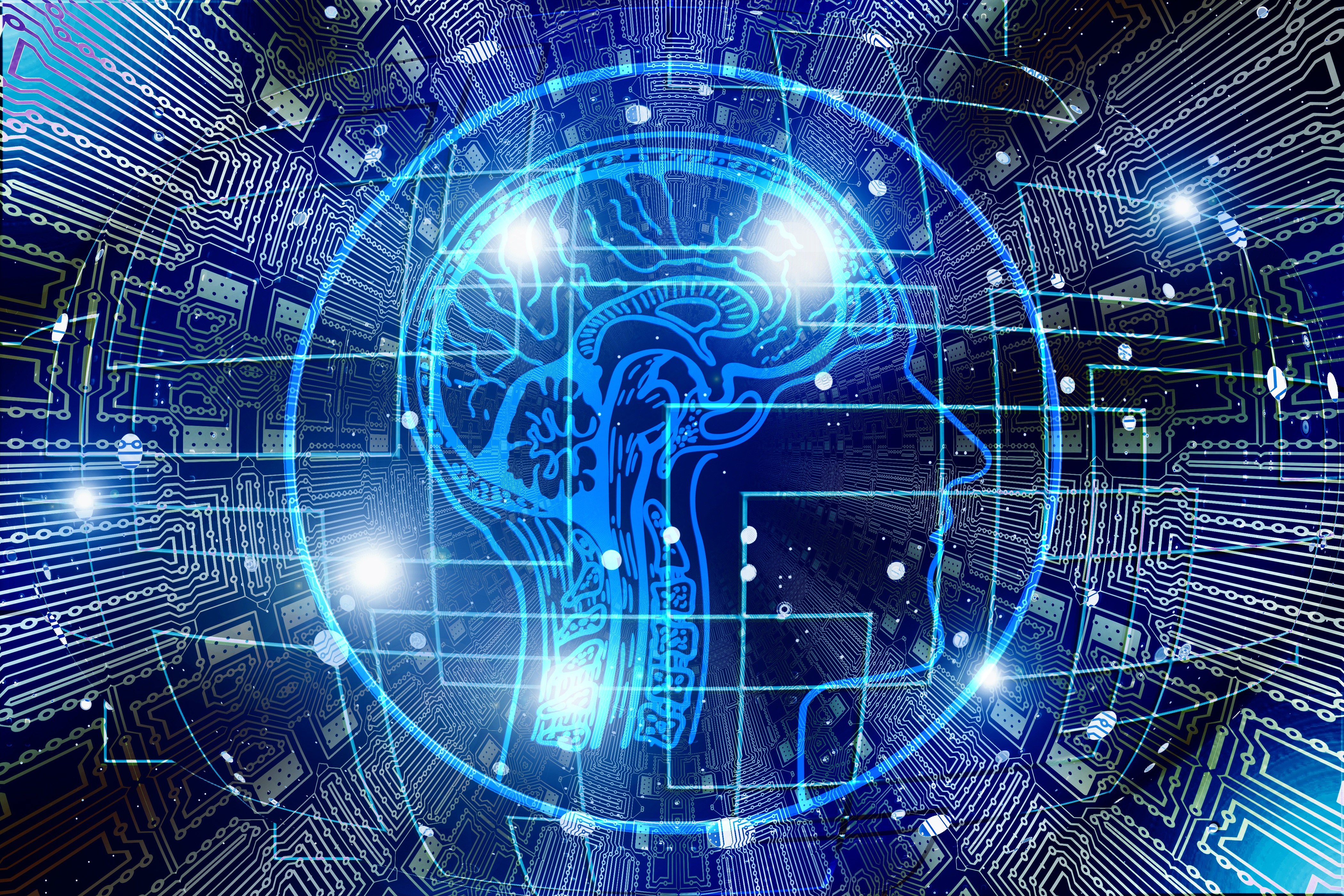Welcome to the world of AI! In this article, we will unravel the fundamental concepts and principles of Artificial Intelligence to help beginners embark on an exciting journey of understanding this transformative technology. So, fasten your seatbelts and get ready to explore the basics of AI like never before!
Introduction to Artificial Intelligence
Artificial Intelligence (AI) is a field of technology that focuses on creating intelligent machines that can perform tasks that typically require human intelligence. It involves understanding how machines can learn from data and make informed decisions or predictions. AI has a wide range of applications in various industries such as healthcare, finance, and transportation.
In AI, machine learning is a key concept. It is a subset of AI that involves training machines to learn from data and improve their performance over time. Machine learning algorithms analyze data, identify patterns, and make predictions or decisions based on the information they have been trained on.
Data plays a crucial role in AI and machine learning. Large amounts of data are collected and analyzed to train AI models. This data can come from various sources, such as sensors, social media, or online platforms like TikTok and Reddit. Analyzing this data helps organizations gain valuable insights and make data-driven decisions.
Understanding AI basics is essential for those interested in pursuing a career in the field or leveraging AI in their work. Learning about algorithms, statistical significance, and regression analysis can provide a solid foundation in AI. Additionally, knowledge of programming languages and software tools like Python and TensorFlow can be beneficial.
There are various resources available for beginners to learn AI. Online platforms like Coursera offer comprehensive courses on AI and machine learning, providing a structured learning path. Experiential learning and hands-on practice are also crucial in gaining practical skills in AI.
Understanding the Difference Between AI and Machine Learning

AI and machine learning are closely related concepts, but they have distinct differences. AI refers to the broader field of creating intelligent machines that can mimic human behavior and perform tasks that typically require human intelligence. Machine learning, on the other hand, is a subset of AI that focuses on enabling machines to learn from data and improve their performance without explicit programming.
In simpler terms, AI is about creating machines that can think and act like humans, while machine learning is about teaching machines how to learn and make decisions based on data.
An example of AI is natural language processing, which allows machines to understand and respond to human language. Machine learning algorithms can be used to train AI systems to improve their language processing capabilities by analyzing large amounts of text data.
AI and machine learning have numerous applications across various industries. In healthcare, for example, AI can be used to analyze medical data and assist in diagnosing diseases. In finance, AI can help detect fraud and make investment predictions. In transportation, AI can be used to develop self-driving cars. The possibilities are endless.
To understand AI and machine learning, it is helpful to have a basic understanding of mathematics, statistics, and computer science. These disciplines provide the foundational knowledge required to develop and implement AI systems.
If you’re interested in learning more about AI and machine learning, there are many educational resources available. Online platforms like Coursera offer comprehensive courses on the subject, and there are numerous books and tutorials available as well.
Timeframe for Learning AI

Learning AI is a comprehensive and complex process that requires dedication and time. The exact timeframe for learning AI varies depending on several factors, including the level of prior knowledge and experience in related fields such as mathematics and programming.
For individuals with a strong background in mathematics and programming, it may take around six months to a year to gain a solid understanding of the basics of AI. This timeframe includes learning key concepts, algorithms, and programming languages commonly used in AI development.
However, for beginners with limited or no prior knowledge in these areas, it may take longer to grasp the fundamentals of AI. It is recommended to start by gaining a solid foundation in mathematics, statistics, and programming languages like Python.
To expedite the learning process, it is advisable to leverage online educational platforms and resources that offer AI courses and tutorials. These resources provide structured learning paths and hands-on exercises to enhance understanding.
Additionally, practical experience and real-world applications play a crucial role in mastering AI. Engaging in projects and participating in Kaggle competitions can provide valuable experience and help solidify knowledge.
Creating a Learning Plan for AI
When diving into the world of AI, it’s important to have a well-structured learning plan. Here are some steps to help you get started:
1. Define your goals: Determine what you want to achieve with AI. Are you interested in understanding the basics, or do you have specific applications in mind? This will guide your learning journey.
2. Research educational resources: Look for reputable online courses, tutorials, and textbooks that cover AI fundamentals. Websites like YouTube and Coursera offer a wide range of options.
3. Start with the basics: Begin by familiarizing yourself with key concepts like machine learning, algorithms, and natural language processing. This will provide a solid foundation for further learning.
4. Practice with real-world examples: Apply your knowledge to real-life scenarios. Use datasets and software tools to gain hands-on experience in AI applications.
5. Join online communities: Engage with AI enthusiasts and professionals on platforms like Reddit and LinkedIn. This will allow you to learn from others’ experiences and stay updated on the latest advancements.
6. Stay informed: Follow reputable AI blogs, podcasts, and news outlets to stay up to date with the latest trends and developments in the field. This will help you understand the practical applications of AI in various industries.
7. Consider formal education: If you’re looking to pursue a career in AI, consider earning a degree or certification in the field. Universities and online platforms offer specialized programs to enhance your skills.
Mastering Prerequisite Skills for AI
To master prerequisite skills for AI, it is essential to have a solid foundation in Linux training. Linux is a powerful operating system widely used in AI development. By familiarizing yourself with Linux, you will gain the necessary skills to navigate the command line interface and efficiently manage files and directories.
Linux is particularly important in AI because it provides a stable and secure environment for running machine learning algorithms and handling big data. With Linux, you can easily install and configure libraries and frameworks that are essential for AI development, such as TensorFlow and PyTorch.
By mastering Linux, you will be equipped with the knowledge and tools to work with AI applications in various domains, including healthcare, education, and finance. Whether you want to develop intelligent chatbots, analyze large datasets, or build recommendation systems like Netflix, Linux skills are crucial.
Taking Linux training courses or tutorials can significantly enhance your understanding of this operating system. These resources will cover topics like navigating the Linux file system, executing commands, managing permissions, and troubleshooting common issues. Additionally, they may provide hands-on exercises to reinforce your learning.
By investing time and effort in mastering Linux, you will be well-prepared to embark on your AI journey. Linux is a fundamental tool for AI engineers and will serve as a solid foundation for your future endeavors in the field. So, start your Linux training today and unlock the potential of AI.
Starting the Journey of Learning AI
One important aspect of learning AI is understanding the algorithms and concepts that power it. From regression analysis to language processing in the brain, these fundamentals provide a solid foundation for further exploration.
To dive into AI, it’s essential to have a strong grasp of computer skills and programming languages. Linux training can be a valuable resource in this regard, as it helps you understand the inner workings of a computer and gain hands-on experience with tools and software commonly used in AI development.
As you embark on your AI journey, it’s important to stay informed and up-to-date with the latest industry developments. Resources like Google, YouTube, and educational platforms offer a wealth of information and tutorials to help you navigate the complex world of AI.
Additionally, consider joining AI-focused communities and organizations to connect with like-minded individuals and gain further insights. Experiential learning and autodidacticism can also play a significant role in your AI education, allowing you to explore AI applications in real-world scenarios.
Remember, learning AI is a continuous process. As you progress, you might find yourself delving into specific disciplines or domains, such as AI in healthcare or AI in transportation. Each step along the way brings you closer to achieving your AI goals and expanding your skill set.
By taking the necessary steps to learn AI and acquiring a comprehensive understanding of its concepts and tools, you can position yourself for exciting and impactful opportunities in this rapidly growing field.
Overview of Programming in AI

Programming in AI involves using algorithms and coding to create intelligent systems and machines that can perform tasks and make decisions similar to humans. It is a rapidly growing field with applications in various industries such as healthcare, education, and technology.
In AI programming, developers use languages such as Python, Java, and C++ to write code that instructs machines on how to process and analyze large amounts of data. This data can come from various sources, including social media platforms like TikTok, or from big data analytics.
One of the key goals in AI programming is to develop algorithms that can learn from data and improve their performance over time. This is known as machine learning, and it is a fundamental concept in AI.
To become proficient in AI programming, it is essential to have a strong understanding of mathematics, statistics, and computer science. Many universities and online platforms offer courses and degrees in AI and related disciplines.
In terms of tools and resources, there are numerous libraries and frameworks available that can assist in AI development, such as TensorFlow and PyTorch. These tools provide pre-built functions and models that can be used to build AI systems more efficiently.
Additionally, it is important to stay updated with the latest advancements and research in the field of AI. Organizations like Google and academic institutions often publish research papers and provide resources for developers to stay informed.
Exploring Machine Learning in AI

Machine learning is a fundamental aspect of artificial intelligence (AI). It involves training machines to learn and make predictions or decisions without being explicitly programmed. In the context of AI basics for beginners, understanding machine learning is crucial.
Machine learning has a wide range of applications across various industries. It is used in analytics to uncover patterns and insights from large datasets. It is also applied in healthcare to improve diagnostics and treatment outcomes. Additionally, it is utilized in educational technology to personalize learning experiences for students.
At its core, machine learning relies on algorithms to process data and make predictions or decisions. These algorithms are designed with a specific goal in mind, such as classifying images or predicting sales. Engineers play a crucial role in developing and refining these algorithms.
When it comes to machine learning, data is key. The more data available, the better the machine can learn and make accurate predictions. Data scientists often use techniques like the likelihood function to train models and evaluate their performance.
To delve deeper into machine learning, individuals can pursue academic degrees or take online courses. Many organizations offer training programs to help beginners gain the necessary skills. Autodidacticism is also a viable option for those who prefer self-learning.
Understanding machine learning jargon is essential for beginners. Terms like “algorithm,” “IP address,” and “user agent” are commonly used in the field and are important to grasp. Don’t let the jargon intimidate you, as it is a normal part of any discipline.
In the United States, the Bureau of Labor Statistics predicts a significant growth in the demand for professionals with machine learning skills. This makes learning machine learning a valuable skill for your career.
Whether you’re interested in building AI applications, improving healthcare outcomes, or analyzing data, machine learning is a powerful tool to have in your arsenal. Take the first step by exploring machine learning in AI and start your journey into this exciting field.
Deep Learning in AI
Deep learning is a subset of artificial intelligence (AI) that focuses on training neural networks to learn and make decisions on their own. It is a complex and powerful field that has revolutionized many industries, including healthcare, finance, and technology.
In deep learning, algorithms are designed to mimic the human brain’s neural networks, allowing machines to process and analyze vast amounts of data. This enables them to recognize patterns, make predictions, and even generate new content.
Deep learning has many practical applications, such as image and speech recognition, natural language processing, and autonomous driving. These advancements have transformed industries and created new opportunities for professionals in the field.
If you are interested in exploring the world of AI and deep learning, gaining a strong foundation in Linux is essential. Linux is an open-source operating system that is widely used in AI and machine learning development. By learning Linux, you can effectively navigate and utilize the tools and technologies required for deep learning.
Linux training will provide you with the necessary skills to work with command-line interfaces, manage file systems, and install and configure software packages. This knowledge is crucial for building and deploying deep learning models on a Linux-based system.
By investing in Linux training, you can position yourself for exciting opportunities in the AI industry. Whether you aspire to become an AI engineer, work in healthcare, finance, or any other field that leverages AI, Linux proficiency is highly valued by employers.
Don’t miss out on the chance to be part of the AI revolution. Start your Linux training journey today and unlock the doors to a promising career in deep learning and AI.
Top AI Courses for Beginners
| Course Title | Provider | Description |
|---|---|---|
| Introduction to Artificial Intelligence | Stanford University | This course provides a broad introduction to the field of artificial intelligence and covers various topics including machine learning, natural language processing, computer vision, and robotics. |
| Machine Learning | Coursera (Andrew Ng) | Andrew Ng, a renowned AI expert, offers this course which covers the basics of machine learning algorithms, supervised and unsupervised learning, and practical applications of machine learning in various fields. |
| Deep Learning Specialization | Coursera (deeplearning.ai) | This specialization includes a series of courses that delve into deep learning, neural networks, and various architectures like convolutional neural networks (CNN) and recurrent neural networks (RNN). It provides hands-on experience with popular deep learning frameworks. |
| Artificial Intelligence for Everyone | Coursera (deeplearning.ai) | This course is designed for individuals with non-technical backgrounds and provides an introduction to AI concepts, its impact on various industries, and ethical considerations associated with AI. |
| Python for Data Science and AI | IBM (Coursera) | This course focuses on Python programming for data analysis, machine learning, and AI. It covers essential libraries like NumPy, Pandas, and Scikit-learn, along with hands-on projects. |
Importance of Learning about AI
Learning about AI is crucial in today’s technologically advanced world. AI, or artificial intelligence, is rapidly becoming a part of our everyday lives. Whether it’s the voice assistant on your smartphone, the personalized recommendations on Netflix, or the self-driving cars on the roads, AI is everywhere. Understanding AI will not only make you more informed and knowledgeable, but it will also open up a world of opportunities for you.
By learning about AI, you can gain a better understanding of its applications in various fields such as healthcare, education, and transportation. AI has the potential to revolutionize these industries by improving efficiency, accuracy, and decision-making processes. Additionally, AI is expected to create a significant number of job opportunities in the coming years. By acquiring the necessary skills and knowledge in AI, you can position yourself for a successful career as an AI engineer or in other related roles.
Furthermore, learning about AI will enable you to understand the underlying algorithms and technologies used in AI systems. This knowledge can be valuable in troubleshooting and optimizing AI systems, as well as in developing new AI applications. Additionally, understanding AI can help you make informed decisions regarding privacy and security, as AI systems often rely on data collection and analysis.
AI for Everyone Course
Throughout the course, you will learn about the fundamental concepts of AI, including algorithms, goals, and reasoning. You will also explore how AI is used in different industries such as healthcare, education, and transportation.
By the end of the course, you will have a good grasp of the key principles of AI and how it can be applied in real-world scenarios. Whether you are interested in pursuing a career in AI or simply want to expand your general knowledge, this course is a great starting point.
No prior technical experience is required to enroll in this course. It is designed for beginners and presented in a user-friendly manner, making it accessible to everyone. So, if you’re ready to dive into the exciting world of AI, this course is the perfect choice for you. Don’t miss out!
Building Generative AI Skills for Business Professionals Course
Throughout the course, participants will gain practical knowledge on algorithms, applications of artificial intelligence, and the goals of AI. The course also covers topics such as educational technology and its impact on business.
By completing this course, professionals will develop a solid foundation in AI, allowing them to make informed decisions and leverage AI technology in their organizations. Whether you work in healthcare, transportation, or any other industry, the skills acquired in this course will be applicable and valuable.
So, if you’re a business professional looking to build your AI skills, the Building Generative AI Skills for Business Professionals Course is a must. Don’t miss out on this opportunity to enhance your knowledge and stay ahead in the evolving world of AI.
Generative AI Learning Path

Generative AI is a branch of artificial intelligence that focuses on creating AI models that can generate new and original content. This learning path will help you gain a solid foundation in this field.
The path starts with an introduction to the algorithm and how it is used in AI. You will learn about the goal of AI and how it is applied in various industries, such as healthcare and transportation.
Throughout the learning path, you will explore different applications of AI, including language processing in the brain and its impact on organization and communication.
The path also covers important concepts like statistical significance and the use of likelihood functions in AI models.
By the end of this learning path, you will have gained enough knowledge to pursue further studies or even consider a career in AI. So, if you’re interested in diving into the world of AI, this Generative AI Learning Path is a great place to start.
AI for Business Specialization
Whether you work in finance, healthcare, or any other sector, understanding AI is becoming increasingly important. AI can help businesses automate processes, analyze data, and make more informed decisions.
Through this specialization, you will learn about the different types of AI algorithms and their applications. You will also gain hands-on experience in using AI tools and techniques to solve real-world business problems.
With the increasing demand for AI professionals in the job market, completing this specialization can open up new career opportunities for you. According to the Bureau of Labor Statistics, the demand for AI specialists is expected to grow at a much faster rate than average in the coming years.
So, whether you want to enhance your skills or switch careers, the AI for Business Specialization is a great choice. Start your journey into the world of AI today and gain the knowledge and skills needed to thrive in the digital age.
AI Foundations for Everyone Course
Throughout the course, learners will explore various applications of artificial intelligence, including its use in healthcare, transportation, and organizations. They will also learn about the reasons behind the growing popularity and importance of AI in today’s world.
By taking this course, individuals will acquire the necessary knowledge to understand how AI works and its potential impact on different industries. They will gain insights into topics such as IP addresses, user agents, and login systems, which are essential components of AI systems.
Whether you are a student, professional, or someone with a general interest in AI, this course will provide you with the foundational knowledge needed to navigate the field. Don’t miss this opportunity to expand your understanding of AI and its applications.
The Ethics of AI Course
The Ethics of AI Course is an essential component for beginners in their journey to understand AI basics. This course delves into the ethical considerations surrounding artificial intelligence, equipping learners with the necessary knowledge to navigate the ethical challenges that arise in this rapidly evolving field. Understanding the ethical implications of AI is crucial for individuals and organizations alike, as it ensures responsible and informed decision-making. It covers various topics such as the impact of AI on society, privacy concerns, bias and fairness in algorithms, and the potential risks associated with AI deployment.
By completing this course, beginners will gain a solid foundation in the ethical principles that should guide AI development and implementation.
Applying AI Knowledge in Real-World Scenarios
One popular application of AI is in healthcare. AI algorithms can analyze vast amounts of patient data to identify patterns and make accurate diagnoses. This can greatly improve patient outcomes and revolutionize the healthcare industry.
Another area where AI knowledge can be applied is in transportation. Self-driving cars are becoming a reality, and AI plays a crucial role in their development. By understanding AI basics, you can contribute to the advancement of this technology and help shape the future of transportation.
AI is also being used in organizations to streamline processes and improve efficiency. From customer service chatbots to predictive analytics, AI has the potential to greatly enhance productivity in various industries.
When applying AI knowledge in real-world scenarios, it’s important to consider ethical implications and potential risks. Understanding the discipline of AI and its limitations will help you make informed decisions and avoid unintended consequences.



